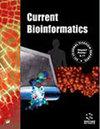Investigation of LncRNAs Expression as a Potential Biomarker in the Diagnosis and Treatment of Human Brucellosis
IF 2.9
3区 生物学
Q3 BIOCHEMICAL RESEARCH METHODS
引用次数: 0
Abstract
Abstract: Long non-coding RNAs (LncRNAs) are significant contributors to bacterial infections and host defense responses, presenting a novel class of gene regulators beyond conventional protein-coding genes. This narrative review aimed to explore the involvement of LncRNAs as a potential biomarker in the diagnosis and treatment of bacterial infections, with a specific focus on Brucella infections. A comprehensive literature review was conducted to identify relevant studies examining the roles of LncRNAs in immune responses during bacterial infections, with a specific emphasis on Brucella infections. PubMed, Scopus and other major scientific databases were searched using relevant keywords. LncRNAs crucially regulate immune responses to bacterial infections, influencing transcription factors, pro-inflammatory cytokines, and immune cell behavior, with both positive and negative effects. The NF-κB pathway is a key regulator for many LncRNAs in bacterial infections. During Brucella infections, essential LncRNAs activate the innate immune response, increasing proinflammatory cytokine production and immune cell differentiation. LncRNAs are associated with human brucellosis, holding promise for screening, diagnostics, or therapeutics. Further research is needed to fully understand LncRNAs' precise functions in Brucella infection and pathogenesis. Specific LncRNAs, like IFNG-AS1 and NLRP3, are upregulated during brucellosis, while others, such as Gm28309, are downregulated, influencing immunosuppression and bacterial survival. Investigating the prognostic and therapeutic potential of Brucella-related LncRNAs warrants ongoing investigation, including their roles in other immune cells like macrophages, dendritic cells, and neutrophils responsible for bacterial clearance. Unraveling the intricate relationship between LncRNAs and brucellosis may reveal novel regulatory mechanisms and LncRNAs' roles in infection regulation, expediting diagnostics and enhancing therapeutic strategies against Brucella infections.LncRNAs表达在人布鲁氏菌病诊断和治疗中的潜在生物标志物研究
摘要:长链非编码rna (LncRNAs)是细菌感染和宿主防御反应的重要贡献者,是一类超越传统蛋白质编码基因的新型基因调控因子。本综述旨在探讨LncRNAs作为潜在生物标志物在细菌感染诊断和治疗中的作用,并特别关注布鲁氏菌感染。我们进行了一项全面的文献综述,以确定LncRNAs在细菌感染期间免疫反应中的作用的相关研究,特别强调布鲁氏菌感染。使用相关关键词对PubMed、Scopus等主要科学数据库进行检索。LncRNAs对细菌感染的免疫反应起着至关重要的调节作用,影响转录因子、促炎细胞因子和免疫细胞行为,有积极和消极的作用。NF-κB通路是细菌感染中许多lncrna的关键调节因子。在布鲁氏菌感染过程中,必需的lncrna激活先天免疫反应,增加促炎细胞因子的产生和免疫细胞分化。lncrna与人类布鲁氏菌病有关,有望用于筛查、诊断或治疗。为了充分了解LncRNAs在布鲁氏菌感染及其发病机制中的确切功能,还需要进一步的研究。特异性LncRNAs,如IFNG-AS1和NLRP3,在布鲁氏菌病期间上调,而其他LncRNAs,如Gm28309,下调,影响免疫抑制和细菌存活。研究布鲁氏菌相关lncrna的预后和治疗潜力需要继续研究,包括它们在其他免疫细胞中的作用,如巨噬细胞、树突状细胞和负责细菌清除的中性粒细胞。揭示LncRNAs与布鲁氏菌病之间的复杂关系可能揭示新的调控机制和LncRNAs在感染调控中的作用,加快布鲁氏菌感染的诊断和增强治疗策略。
本文章由计算机程序翻译,如有差异,请以英文原文为准。
求助全文
约1分钟内获得全文
求助全文
来源期刊

Current Bioinformatics
生物-生化研究方法
CiteScore
6.60
自引率
2.50%
发文量
77
审稿时长
>12 weeks
期刊介绍:
Current Bioinformatics aims to publish all the latest and outstanding developments in bioinformatics. Each issue contains a series of timely, in-depth/mini-reviews, research papers and guest edited thematic issues written by leaders in the field, covering a wide range of the integration of biology with computer and information science.
The journal focuses on advances in computational molecular/structural biology, encompassing areas such as computing in biomedicine and genomics, computational proteomics and systems biology, and metabolic pathway engineering. Developments in these fields have direct implications on key issues related to health care, medicine, genetic disorders, development of agricultural products, renewable energy, environmental protection, etc.
 求助内容:
求助内容: 应助结果提醒方式:
应助结果提醒方式:


